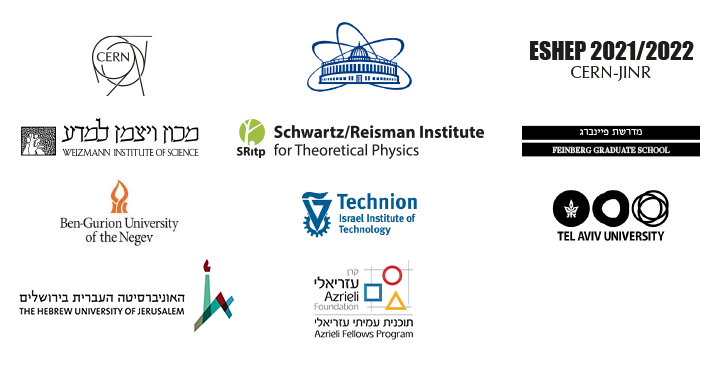UPDATE September 2022
The European School in Israel was originally planned for 2020, but had to be postponed several times as a result of the COVID-19 pandemic. Following the invasion of Ukraine by Russia in February 2022 and subsequent decisions by CERN Council, it was agreed that the 2022 European School of HEP would be organised by CERN alone, without further involvement from JINR. We acknowledge the participation of the JINR members of the International Organising Committee prior to that date, including in defining the scientific programme and making the selection of students for the School.
The revised dates for the School are Wednesday 30 November (arrivals) to Tuesday 13 December (departures), 2022.
Academic Programme
There will be about 33 lectures, each lasting about 90 minutes including time for questions. These will be complemented by parallel group discussion sessions most afternoons. There will be an evening poster session during which all students are invited to present their research work. The programme will include a short course on science communications and outreach. In addition, there will be group project work based on an outreach theme. The timetable will be available soon. The scientific programme can be found here.
Who can apply?
The European School is targeted particularly at students in experimental HEP who are in the final years of work towards their PhDs. Other schools, such as the CERN-FNAL Hadron Collider School may provide more appropriate training for young postdocs in experimental HEP, PhD students who have already attended the European School, and senior PhD students in HEP phenomenology. It should be noted that some pre-knowledge of the subjects is necessary in order to be able to profit fully from the lecture courses.
Demand for attendance at the European Schools exceeds the number of available places, so a competitive selection is made. Preference is given to students who have connections with CERN and JINR Member States either because of their nationality, or because of their institutional affiliation, or because they are involved in an experimental programme at a laboratory located in one of the Member States. Nevertheless, applications from other geographical areas will be considered. One or two students from developing countries could be considered for financial support.
